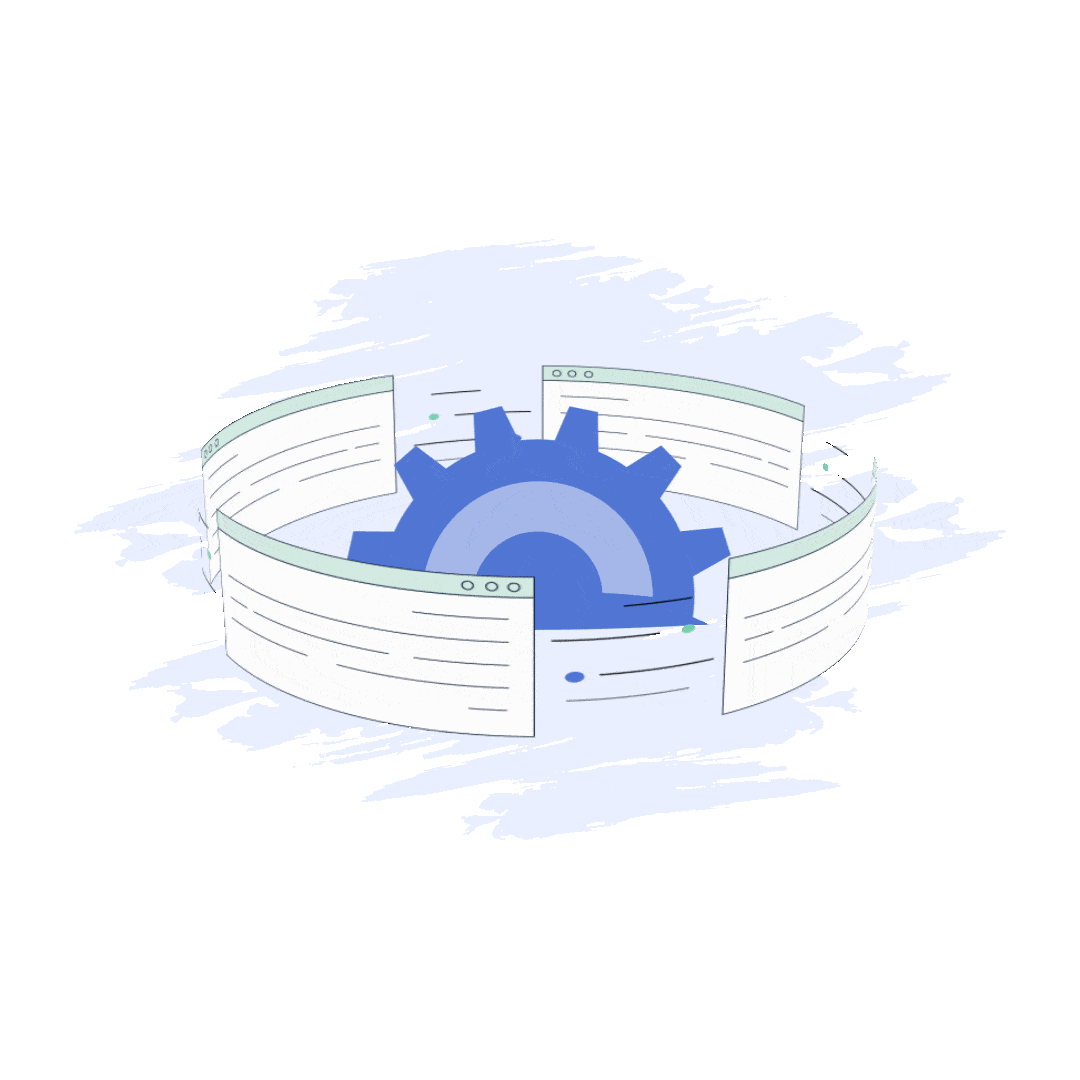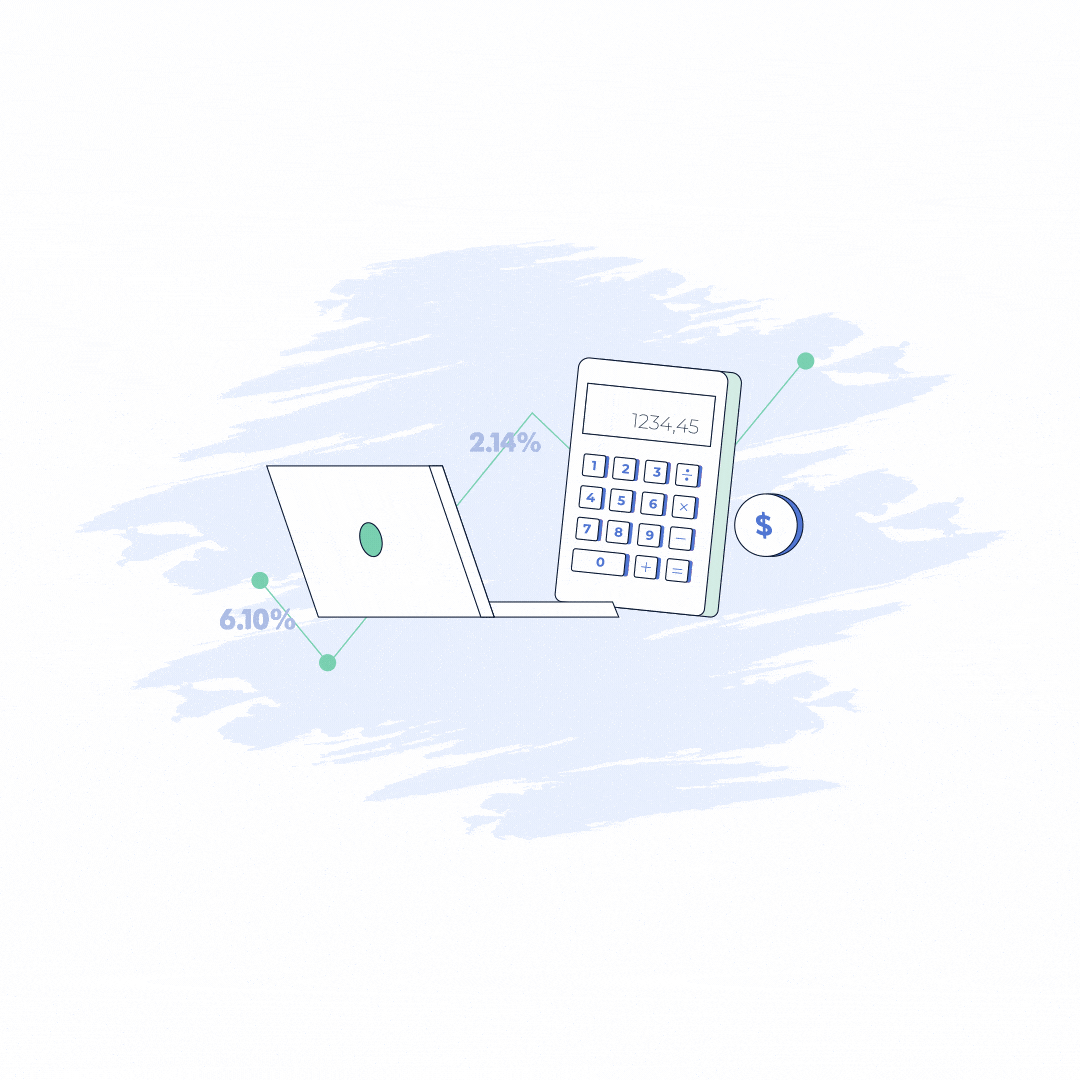Why Zamp?
Combining technology and help from sales tax experts is a game changer.
We do the heavy lifting, so you don’t have to.

Fully Managed Solution
Stressing over sales tax is a thing of the past. All you do is click approve, and we handle the rest. You'll always be up-to-date and sales tax compliant.

Developer Friendly Sales Tax API
Connect your existing e-commerce, marketplace & ERP systems within minutes, and use Zamp’s API for roof-top accurate sales tax calculations.

One Price
One simple price that scales with your business. No overages, no hidden fees, no surprises.
Sales Tax Service
- Sales Tax Basics
- Applying Sales Tax in E-commerce
- Nexus: A Key to Understanding E-commerce Taxes
- How Sales Tax Laws Differ Across States
- Mastering Sales Tax for Online Selling
- Managing Sales Tax with Technology
- Navigating Tricky Situations in E-commerce Sales Tax
- Navigating Exemptions like a Pro
- Audits and Penalties in E-commerce
- The Future of E-commerce Sales Tax
- The Importance of Effective Tax Management
- Sales Tax Service FAQ
Jumping into the world of e-commerce is exciting, but there’s a crucial piece you need to get a handle on right away: sales tax. Unlike a brick-and-mortar store where figuring out sales tax is pretty much a one-rule-fits-all situation, selling online can get a bit tricky. That's because you're dealing with customers from different places, each with its own tax rules.
Getting sales tax right is super important because it helps protect your business from any unexpected costs like fines or penalties, which can pop up if the tax isn't handled correctly.
So, as you set up your online store, taking the time to understand the ins and outs of sales tax in these different areas isn't just helpful; it’s essential for keeping your business safe and sound financially. Plus, it gives you the peace of mind to focus more on growing your business and less on worrying about tax issues. Let’s dive in and get you up to speed on what you need to know.
Sales Tax Basics
Think of sales tax like a small extra charge that everyone pays when buying almost anything, from a new video game to a slice of pizza. This charge isn't just random; it's a tax imposed by government authorities on goods and services when they're sold. For those of you running an e-commerce business, this means you need to add this extra bit of money - sales tax - to the price of the items you sell. After collecting it, you're responsible for sending it off to the right government department.
Applying Sales Tax in E-commerce
Figuring out when and how much sales tax to add can be a bit like a puzzle, especially online. This is where the term "nexus" comes into play. Nexus basically means connection or link.
In the world of e-commerce, it refers to your business having a certain kind of link to a state or area that requires you to collect sales tax from customers there. We'll dig deeper into this concept soon, but just remember, knowing if your business has nexus somewhere helps you understand where you need to collect sales tax, making sure you’re following the rules and keeping everything on the up and up.
In the next section, we'll break down different types of nexus and how they might apply to your online shop, so you can be confident you're charging the right people the right amount of sales tax.
Book a call today
We'll answer all of your sales tax questions & address any of your concerns to ensure that you never have to worry about sales tax again-
1Book a free 30 minute call
-
2Meet with one of our experts
-
3Get sales tax off your plate
Nexus: A Key to Understanding E-commerce Taxes
Nexus is all about whether a business has enough of a presence in a state to be responsible for collecting and paying sales tax there.
Physical Nexus: Imagine your business has a real, physical footprint in a state, like an office or a warehouse. That's physical nexus.
Economic Nexus: Now, let's talk numbers. Some states say, "Hey, if you're making a certain amount of sales here, you gotta pay up." That's economic nexus.
Click-through Nexus: Ever clicked on a link that took you to a product, and the website owner got a commission? If that website is in a state with click-through nexus laws, you might owe some taxes.
Affiliate Nexus: Similar to click-through, but instead of random links, it's when people in a state actively promote your stuff and send customers your way.
How Sales Tax Laws Differ Across States
Each state has its own set of rules for what gets taxed and how much. In New York, for example, if clothing costs more than $110, you'll have to pay sales tax on top of the price tag. But in California, they might add extra fees to certain products to help the environment.
Now, Texas has its own twist. If you're selling stuff online and your sales hit over $500,000, you've got to start collecting sales tax. That's a big deal!
Understanding these little differences is super important so you can make sure you're following the rules no matter where you're doing business.
Mastering Sales Tax for Online Selling
Before you can start adding sales tax to your customers' purchases, you've got to jump through a few hoops. First up, you need to register for a sales tax permit. This is like your golden ticket - it gives you the green light to collect taxes in the states where you're doing business. Each state has its own set of rules for registration, so make sure you do your homework and get everything sorted out.
Once you're all registered up, it's time to talk about sales tax filing and remittance. See, it's not just about collecting the taxes - you've also gotta make sure you pay them on time. That means keeping track of filing deadlines and making sure you're sending in the right amount of dough. Trust us, you don't want to mess this part up!
Managing Sales Tax with Technology
Now, let's talk about everyone's favorite topic: technology. When it comes to managing sales tax, technology is your best friend. Seriously, it can make your life so much easier. Sales tax software can help you track and calculate sales tax, so you don't have to do it all by hand.
Sales tax software solutions are like having a team of experts at your fingertips. They know all the ins and outs of sales tax, from different rates to special rules in each state. Plus, they can save you a ton of time and stress. Instead of spending hours crunching numbers, you can let the software do the heavy lifting while you focus on running your business.
And here's the best part: automation. That's right, with the right software, you can automate a lot of the tedious stuff. That means no more manual data entry or late-night calculations. Instead, you can set things up to run smoothly in the background, so you can spend less time worrying about taxes and more time growing your business. It's a win-win!
Navigating Tricky Situations in E-commerce Sales Tax
Alright, let's talk about one of the biggest headaches in the world of online selling: tax rates. See, when you're selling stuff online, you're not just dealing with one tax rate, you're dealing with a whole bunch of them! We’ve already discussed sales tax differing from state to state, but it can get even trickier. Some cities and towns have their own taxes on top of the state ones. So, if you're selling to customers all over the place, you've gotta make sure you're collecting the right amount of tax for each location.
Navigating Exemptions like a Pro
Now, let's talk about sales tax exemptions. These are like little exceptions to the rule. Sometimes, certain products or customers are exempt from paying sales tax. But here's the thing: figuring out who's exempt and who's not can be pretty complicated. So, you need to be really careful and make sure you handle these exemptions correctly.
Different states have different rules about what can be exempt from sales tax. Some states might say things like food and medicine don't need sales tax, while others might have different ideas.
To make sure you're following the rules, you've gotta know who can get those exemptions. That means keeping track of what each state says and making sure you're not charging sales tax when you shouldn't be. It's a bit like playing detective, but with taxes instead of mysteries.
If all this sounds like a lot to handle, don't worry, you're not alone. Lots of businesses find exemptions confusing, which is why it's totally okay to ask for help. Sales tax experts can give you advice and make sure you're doing everything right. So, don't be afraid to reach out if you're feeling stuck.
Audits and Penalties in E-commerce
Sales tax audits happen when the sales tax authorities decide to take a closer look at your business books to make sure everything's on the up and up.
What can trigger an audit? Well, there are a few common red flags that might catch the taxman's attention. Things like sudden spikes in sales, inconsistencies in your tax filings, or just being in a high-risk industry can all raise eyebrows and land you in audit territory.
And, if you're not playing by the rules, you could be looking at some serious consequences. Think hefty penalties, back taxes, and even legal trouble. So, it's important to make sure you're dotting your i's and crossing your t's when it comes to sales tax compliance.
If you ever find yourself staring down the barrel of an audit, there are some things you can do to make it through in one piece. Like keeping meticulous records, staying organized, and seeking help from professionals if you need it. With the right preparation and a cool head, you can come out the other side of an audit stronger than ever.
The Future of E-commerce Sales Tax
With technology advancing and the e-commerce landscape constantly evolving, it's safe to say that tax legislation will probably change too. That means keeping an eye out for any new laws or regulations that could impact how you handle sales tax in your online business.
Thankfully sales tax automation technology is on the rise. We're talking about advancements in tax compliance software that can make your life a whole lot easier. From smarter algorithms that can calculate taxes in real-time to automation tools that streamline the entire process, the future of tax compliance is looking pretty bright.
The Importance of Effective Tax Management
Managing sales tax effectively in e-commerce isn't just important - it’s vital for the success of your business. From staying compliant with ever-changing tax laws to harnessing the power of technology, there's a lot to think about. But with robust systems in place and the help of tax professionals when you need it, you can tackle any challenge that comes your way. So, here's to embracing the future of e-commerce sales tax and building a thriving business in the digital age.
Why Choose Zamp?
Zamp offers a managed solution approach, taking care of everything from onboarding to future changes in sales tax regulations. Our automation ensures that you can focus on your business while we handle all aspects of sales tax compliance. With our commitment to accuracy and reliability, you can trust Zamp to keep your business compliant and free from the burden of managing sales tax.
Schedule a Demo
Ready to experience freedom from sales tax headaches? Schedule a demo with Zamp today and see how our solutions can benefit your business. With Zamp by your side, you'll never have to touch sales tax again. Get in touch with our team of experts today!
Book a call today
We'll answer all of your sales tax questions & address any of your concerns to ensure that you never have to worry about sales tax again-
1Book a free 30 minute call
-
2Meet with one of our experts
-
3Get sales tax off your plate
Sales Tax Service FAQ
If your business has a physical or economic presence in a state, you likely need to register for a sales tax permit. This includes having a physical location, making sales over a certain threshold, or participating in certain activities like affiliate marketing.
Failing to collect sales tax can lead to penalties and fines from tax authorities. Additionally, you may be required to pay the uncollected taxes out of pocket, which can eat into your profits.
Sales tax on shipping charges varies by state. Some states consider shipping charges as taxable, while others do not. It's essential to understand the rules in each state where you have nexus and charge sales tax accordingly.
The frequency of sales tax filing depends on the volume of your sales and the requirements of each state where you're registered. It can range from monthly, quarterly, or annually. Be sure to check the filing frequency for each state to avoid missing deadlines.
Yes, sales tax automation software can be a valuable tool for managing sales tax compliance across multiple states. It can calculate tax rates, track nexus, and generate accurate reports, saving you time and reducing the risk of errors.
If you receive a sales tax audit notice, it's essential to respond promptly and cooperate with the auditor. Having organized records and documentation can help streamline the audit process. Consider seeking assistance from a tax professional to ensure you're prepared and navigate the audit smoothly.
- Sales Tax Basics
- Applying Sales Tax in E-commerce
- Nexus: A Key to Understanding E-commerce Taxes
- How Sales Tax Laws Differ Across States
- Mastering Sales Tax for Online Selling
- Managing Sales Tax with Technology
- Navigating Tricky Situations in E-commerce Sales Tax
- Navigating Exemptions like a Pro
- Audits and Penalties in E-commerce
- The Future of E-commerce Sales Tax
- The Importance of Effective Tax Management
- Sales Tax Service FAQ
Book a call today
We'll answer all of your sales tax questions & address any of your concerns to ensure that you never have to worry about sales tax again-
1Book a free 30 minute call
-
2Meet with one of our experts
-
3Get sales tax off your plate


